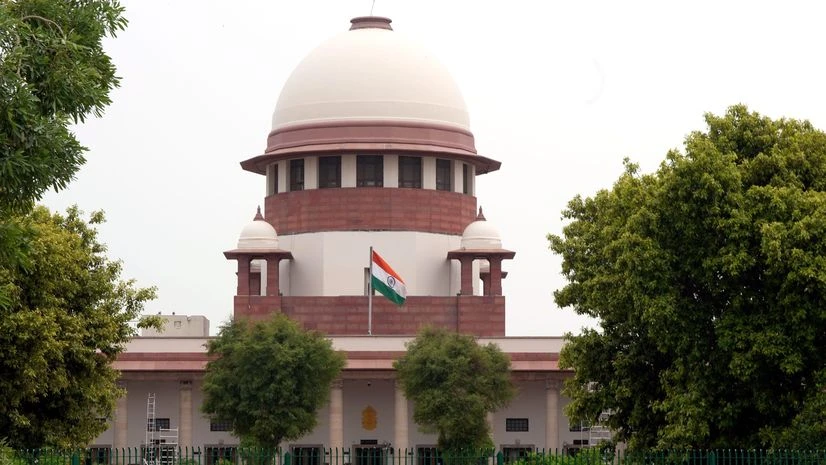Observing that there is a trust deficit between farmers and the central government, the Supreme Court on Wednesday proposed the constitution of an independent committee comprising eminent persons to reach out to the protesters at Shambhu border and address their demands, including a legal guarantee of MSP.
The top court directed the Punjab and Haryana governments to suggest the names of suitable individuals for the committee and submit a proposal for removal of barricades on the national highway while ordering a status quo on the border for a week.
A three-judge bench headed by Justice Surya Kant said there is a need for a "neutral umpire" who can inspire confidence between farmers and the government.
"You have to take some steps to reach out to farmers. Why would they otherwise want to come to Delhi? You are sending Ministers from here and despite their best intentions there is trust deficit," the bench also comprising Justices Dipankar Datta and Ujjal Bhuyan said.
"Let appropriate instructions be taken within a week. Till then let parties maintain status quo at the site to prevent flaring up of the situation at the Shambhu border," the bench said while posting the matter after a week.
The top court was hearing the Haryana government's plea challenging the high court order asking it to remove within a week the barricades at the Shambhu border near Ambala where protesting farmers have been camping since February 13.
During the hearing, Solicitor General Tushar Mehta submitted that earlier the roads were blocked against the three agricultural laws and now they have new demands.
More From This Section
The top court said the Centre has to examine the demands of the farmers as a welfare state.
"Some demands may be genuine, others may not be acceptable," the bench said.
The apex court remarked that the state cannot keep the highway blocked all round the year.
Mehta submitted that over 500-600 tanks, which have been modified as "armoured tanks" are positioned at the protest site.
He said if they are permitted to travel to the national capital, law and order situation may arise.
Punjab Advocate General Gurminder Singh submitted that while Haryana can regulate the movement but the blockade of national highway was resulting in huge ramifications for the economy of Punjab.
The state government in its appeal has cited the law and order situation for the blockade.
On July 12, while hearing a related matter, the top court had asked the Haryana government to remove the barricades and questioned its authority to block the highway.
The Haryana government had set up barricades on the Ambala-New Delhi national highway in February after the Samyukta Kisan Morcha (Non-Political) and the Kisan Mazdoor Morcha announced that farmers would march to Delhi in support of various demands, including a legal guarantee of minimum support price (MSP) for crops.
"How can a state block a highway? It has a duty to regulate traffic. We are saying open it but regulate," a bench of Justices Surya Kant and Ujjal Bhuyan had said on July 12 after the Haryana government counsel informed the bench about the state's intention of filing an appeal in the apex court.
Justice Kant had told the state's counsel, "Why do you want to challenge the high court's order? Farmers are also citizens of this country. Give them food and good medical care. They will come, raise slogans and go back. I think you don't commute by road."
The top court had made the observations while hearing a plea of the Haryana government challenging a March 7 decision of the Punjab and Haryana High Court to set up a committee headed by a former high court judge to probe farmer Shubhkaran Singh's death during a clash between the protesting farmers and Haryana security personnel in February.
Singh, 21, a native of Bathinda, was killed and several police personnel were injured in clashes at Khanauri on the Punjab-Haryana border on February 21.
The incident occurred when some protesting farmers were trying to head towards the barricades erected at the border and were stopped by the security personnel from marching to Delhi.
In its order, the high court had also said if any law and order situation arises, the state government can take preventive action according to law.
It had issued a similar direction to the Punjab government for maintaining law and order while stating that the barricades on its side should also be removed.
(Only the headline and picture of this report may have been reworked by the Business Standard staff; the rest of the content is auto-generated from a syndicated feed.)

)